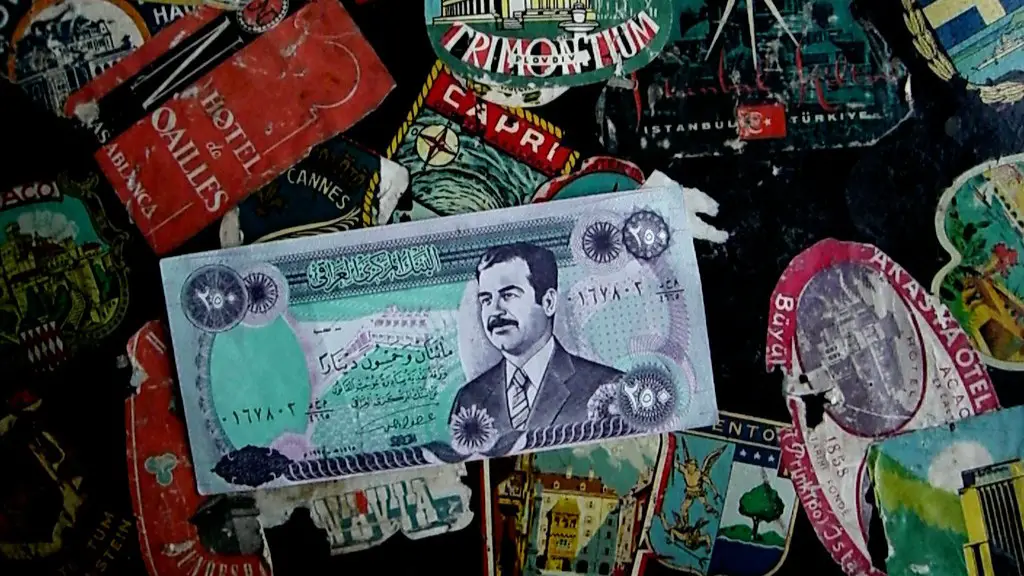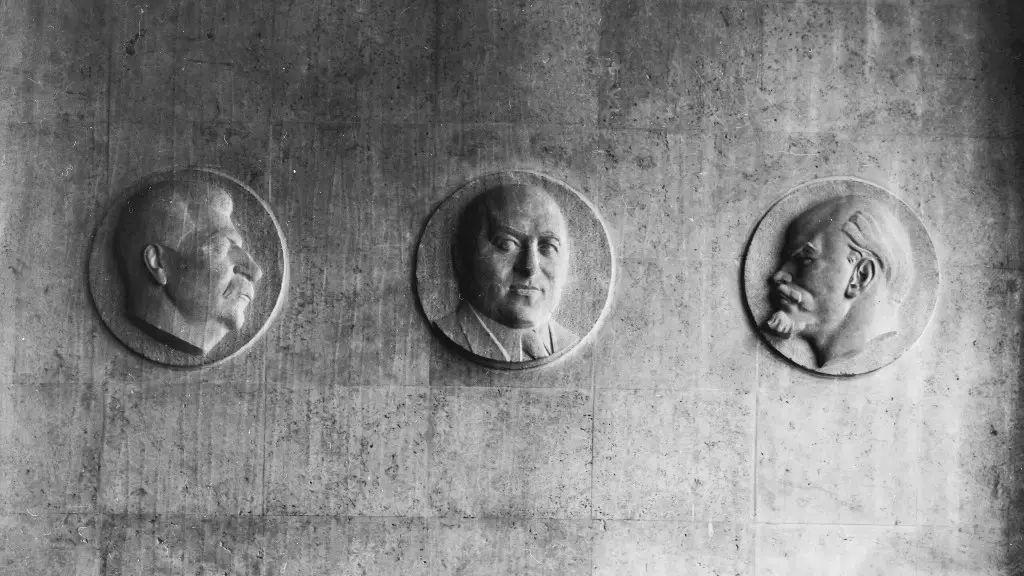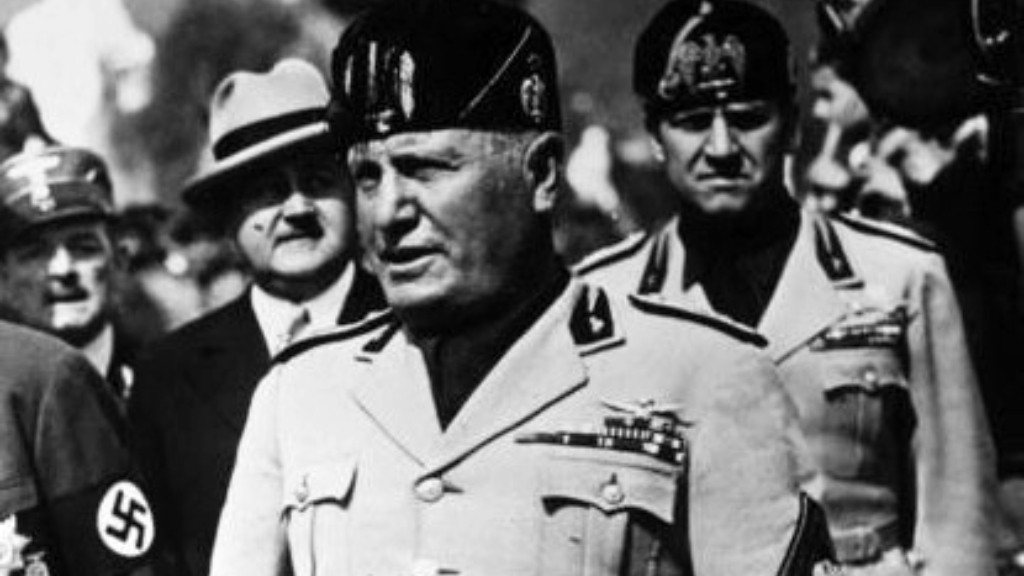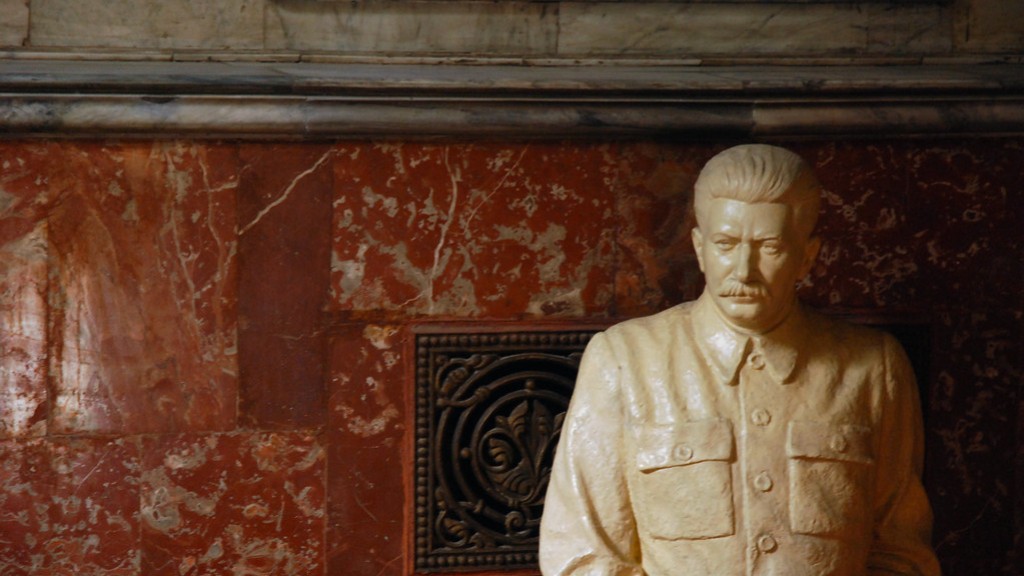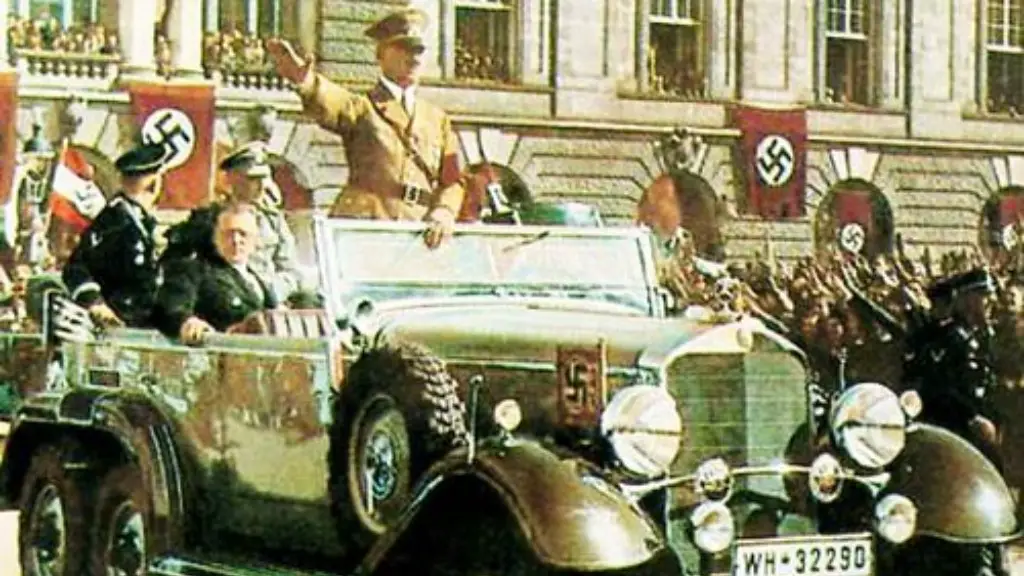Muammar Gaddafi was a dictator and the face of Libya for over 40 years. He ruled with an iron fist and was known for his sophisticated ideology of “one-man rule” or “the theory of the Third International Theory”, a combination of nationalism, socialism and Islamism. He was a controversial leader, admired by some and despised by others. But one thing is for sure: Gaddafi had a massive impact on Libya’s politics and economy, and he deeply shaped the country’s fate. Throughout his rule, Gaddafi imposed tough restrictions on the press and the media, severely limiting freedom of the press. He also created restrictive economic policies which directly impacted Libya’s economy. How did this all start and what kind of person was Muammar Gaddafi? This article takes a closer look at Gaddafi’s leadership and explores why he was seen as bad person.
Born on June 7, 1942, Muammar Gaddafi was an Arab nationalist, originally a Bedouin from a small tribe near Sirte in the interior of Libya. He was born into a modest family and was expected to take over the family farm. His political aspirations, however, were far different than what his family had expected. Gaddafi was educated in Libyan schools and received his college education in Egypt at the Al-Azhar University. After graduating from college, he joined the military and became an officer in the Libyan army, eventually rising to the rank of colonel. After a successful military career, Gaddafi soon began promoting his own political ideas and was ultimately declared head of state in 1969. From then on, Libya was under Gaddafi’s control.
Gaddafi’s iron-fisted rule was oppressive, and his policies limited the rights of the Libyan people. His control of the media, resources and governmental bureaucracy made it easy for him to oppress the Libyan citizens. Gaddafi was accused of human rights violations, including torture, extrajudicial killings and disappearances, as well as political repression and censorship. Despite the fact that Gaddafi was responsible for instituting sweeping reforms to improve living standards in Libya, many Libyans were appalled by his authoritarian style of rule. For example, Gaddafi imposed strict controls on the media, censorship, and propaganda campaigns. He also established severe restrictions on political and civil rights, including freedom of assembly and expression.
The brutal Libyan civil war, between Gaddafi’s forces and the rebels, only added to his reputation as an oppressive leader and further angered the international community. Human Rights Watch and other organizations reported that Gaddafi launched deadly airstrikes against populated areas, as well as indiscriminate shelling of civilians, which resulted in thousands of deaths. In addition, Gaddafi’s forces were accused of committing widespread violations of human rights, including arbitrary detention, torture and extrajudicial killings. Furthermore, some sources reported that Gaddafi set a reward system for killing anti-government activists.
Gaddafi has been linked to numerous terrorist attacks and bombing campaigns, both in Libya and abroad. In the 1980s, Gaddafi sponsored terrorist groups such as the Irish Republican Army and the Red Brigades. During his four decades of rule, Gaddafi also used Libya’s oil wealth to support insurgencies, rebel groups and terrorist organizations, as well as his own state-sponsored terrorism. In addition, Gaddafi was accused of supplying weapons, training, and other forms of assistance to various armed groups in countries including Chad, Lebanon and Syria.
Gaddafi was an eccentric leader who at times seemed to have lost touch with reality. He had a penchant for wild and outrageous public appearances, such as his 1975 speech at the U.N. General Assembly, in which he appeared in a tent and delivered a three-hour long rant about the United States and the West. Gaddafi had a flair for the dramatic, but many found his tactics excessive and ultimately feared him. It was these kinds of actions, combined with his rigid and oppressive rule, that made Gaddafi a much-loathed leader in Libya and around the world.
Impact on the Middle East and North Africa
Gaddafi’s rule had a profound impact on the Middle East and North Africa (MENA). His ideology motivated many leaders in other Arab countries to follow his example and impose their own dictatorships. Under Gaddafi’s rule, Libya became the first MENA country to introduce land reform, health reforms and initiatives to combat poverty. Gaddafi’s model of one-man rule has been copied by many leaders in the region today, many of whom are seeking to replicate his success.
Gaddafi also played a major role in the development of the Arab League, a pan-Arab organization which aims to promote cooperation among MENA countries. Gaddafi was instrumental in creating the Unified Arab State, which was an attempt to bring the region together under one government. He used his regional clout to establish an anti-Western and anti-American alliance of states, and he strongly criticized what he viewed as Western imperialism. Despite his anti-Western stance, Gaddafi was heavily courted by the Western powers and was seen as a valuable partner in the fight against terrorism during the 2001 World Trade Center attack.
Gaddafi’s influence in the region was not limited to politics. He used Libyan oil revenues to build up the country’s infrastructure and increase the standard of living of Libyans, and he invested heavily in education, health and welfare programs. His social and economic reforms helped Libya become one of the most prosperous nations in MENA, with a higher GDP and HDI than other countries in the region.
Analyzing Gaddafi’s Legacy
Gaddafi’s legacy remains a controversial topic. Despite his undeniable achievements in building Libya’s economy, education and infrastructure, many Libyans and members of the international community still remember the dark side of Gaddafi’s rule. His oppressive policies, relentless oppression of his own people, and his criminal activities have tarnished his image and led many to view him as a “bad person”. Despite his numerous human rights abuses, many Libyans still remembered Gaddafi as a symbol of Arab nationalism and as a leader who was not afraid to stand up to the West.
Gaddafi’s rule was undoubtedly tumultuous and complex, and his legacy remains a subject of fierce debate. Many Libyans still see him as a hero who fought for Libya’s sovereignty, while others view him as an oppressive dictator. Regardless of how one views him, it is undeniable that Gaddafi played an instrumental role in shaping Libya and the Middle East. His controversial legacy will continue to be analyzed and discussed for years to come.
Impact on Libya’s Economy
Gaddafi’s rule had a profound impact on Libya’s economy, both positive and negative. Under Gaddafi, crude oil and natural gas revenues enabled Libya to become one of the wealthiest countries in the Middle East, with a growing economy and a rising standard of living. According to estimates, during Gaddafi’s rule, Libya had one of the highest GDPs in Africa, 10 times more than Egypt. The abundance of oil and natural gas reserves enabled Libya to invest heavily in basic services such as healthcare, education, as well as infrastructure.
However, Libya suffered under Gaddafi’s oppressive rule, and his policies significantly harmed the economy. Due to his erratic and autocratic rule, Libya struggled to attract foreign investment and was unable to develop a strong, diversified economy. Additionally, Gaddafi’s repressive policies limited Libya’s opportunities for economic development, resulting in economic stagnation and the country’s inability to develop its own industry. Furthermore, Gaddafi’s use of oil revenue to fund his own political agenda and state-sponsored terrorism led to international isolation, further straining the economy.
International Sanctions
In response to Gaddafi’s human rights abuses, the international community imposed strict economic sanctions on Libya. The sanctions had a significant impact on the country’s economy, leading to a decline in oil production, a fall in the country’s GDP, and a weakened economy. The sanctions also led to crippling food shortages, as Libya’s ability to import food was limited. In addition, the travel restrictions imposed by the sanctions prevented Libyans from traveling abroad, limiting their access to international markets and opportunities.
The sanctions forced Gaddafi to agree to a number of reforms, including the abolition of certain oppressive policies such as censorship and restrictions on the media. However, despite the international pressure, Gaddafi’s grip on power remained tight, and he refused to allow a democratic transition in Libya. Despite the reforms, his oppressive rule continued until his death in 2011.
The Final Years of Gaddafi’s Rule
As Gaddafi’s rule entered its later stages, his policies became increasingly authoritarian. His failure to respond to the growing unrest in the country led to widespread protests, culminating in the 2011 Libyan Civil War. The war lasted for months and resulted in Gaddafi’s downfall, as his forces were unable to withstand the rebel onslaught. In October 2011, Gaddafi was captured and killed, ending his 42-year rule of Libya.
Gaddafi’s end was not a happy one, and his legacy remains shrouded in controversy. His rise to power began with a dream of Arab unity and a vision of a Libyan revolution that could bring prosperity to the nation. However, his oppressive rule and criminal activities tarnished his legacy and resulted in his eventual fall. He was seen as a villain by many, and his rule will forever be remembered as a dark chapter in Libya’s history.
The Impact of Gaddafi’s Rule in the Region
One of the lasting impacts of Gaddafi’s rule is his influence on other leaders in the Middle East and North Africa. Gaddafi’s ideology motivated many leaders in the region to adopt a more autocratic style of governance. His actions ended up causing a ripple effect in the region, as more and more leaders embraced a similarly oppressive style of rule. His model of one-man rule has been widely emulated in the region, and many leaders are seeking to replicate his success.
Gaddafi’s rule also had a major impact on the broader MENA region, as he was a vocal advocate for Arab unity. His vision of a pan-Arab state inspired many, and it is widely believed that his ideas of regional integration laid the foundation for the current state of affairs in the region. In addition, Gaddafi’s legacy had an impact on the development of the Arab League, as it was his initiative that led to the founding of the organization. Gaddafi used his regional clout to establish an anti-Western and anti-American alliance of states, and he was vocal in his criticism of the West.
Conclusion
Gaddafi’s rule was controversial and highly problematic, but it is undeniable that he had a major impact on Libya and the region. His rule was oppressive and authoritarian, but his achievements in building Libya’s economy, improving basic services and investing in infrastructure also cannot be overlooked. Whether one views Gaddafi as a hero or a villain, his legacy will remain an important part of Libya’s history.
